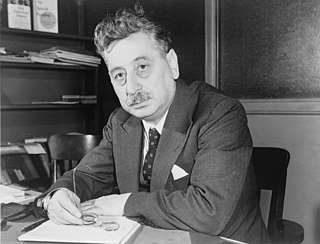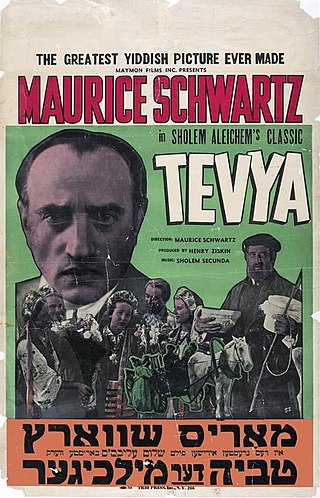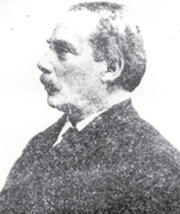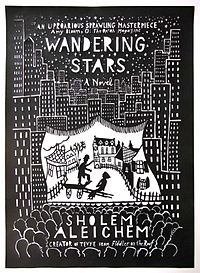
Tevye the Dairyman, also translated as Tevye the Milkman is the fictional narrator and protagonist of a series of short stories by Sholem Aleichem, and their various adaptations, the most famous being the 1964 stage musical Fiddler on the Roof and its 1971 film adaptation. Tevye is a pious Jewish dairyman living in the Russian Empire, the patriarch of a family including several troublesome daughters. The village of Boyberik, where the stories are set, is based on the town of Boyarka, Ukraine, then part of the Russian Empire. Boyberik is a suburb of Yehupetz, where most of Tevye's customers live.

Fiddler on the Roof is a musical with music by Jerry Bock, lyrics by Sheldon Harnick, and book by Joseph Stein, set in the Pale of Settlement of Imperial Russia in or around 1905. It is based on Tevye and his Daughters and other tales by Sholem Aleichem. The story centers on Tevye, a milkman in the village of Anatevka, who attempts to maintain his Jewish religious and cultural traditions as outside influences encroach upon his family's lives. He must cope with the strong-willed actions of his three older daughters who wish to marry for love; their choices of husbands are successively less palatable for Tevye. An edict of the tsar eventually evicts the Jews from their village.

Solomon Naumovich Rabinovich, better known under his pen name Sholem Aleichem, was a Yiddish author and playwright who lived in the Russian Empire and in the United States. The 1964 musical Fiddler on the Roof, based on Aleichem's stories about Tevye the Dairyman, was the first commercially successful English-language stage production about Jewish life in Eastern Europe.

Sholem Asch, also written Shalom Ash, was a Polish-Jewish novelist, dramatist, and essayist in the Yiddish language who settled in the United States.
The Vilna Troupe, also known as Fareyn Fun Yiddishe Dramatishe Artistn and later Dramă şi Comedie, was an international and mostly Yiddish-speaking theatre, one of the most famous in the history of Yiddish theater. It was formed in and named after the city of Vilnius (Vilna) in the Russian Empire, later capital city of Lithuania. Distinctly Modernist, and strongly influenced by Russian literature and by the ideas of Konstantin Stanislavski, their travels in Western Europe and later to Romania played a significant role in the dissemination of a disciplined approach to acting that continues to be influential in the present day.
The Moscow State Jewish (Yiddish) Theatre, also known by its acronym GOSET (ГОСЕТ), was a Yiddish theatre company established in 1919 and shut down in 1948 by the Soviet authorities. During its time in operation, it served as a prominent expression of Jewish culture in Russia under Joseph Stalin. Under its founding artistic director, Alexander Granowsky, productions were heavily influenced by the avant-garde trends of Europe and many reflected an expressionistic style. Summertime tours to rural shtetls were extremely popular. At the end of a 1928 tour in Germany, Granowsky defected to the west, and Solomon Mikhoels became artistic director in his place. During Mikhoels' tenure the theatre branched out beyond classic Yiddish theatre productions to include works by Soviet Yiddish writers and William Shakespeare. The theatre continued to operate during World War II in Moscow and, after the evacuation of the city in 1943, in Tashkent. Mikhoels was murdered by the MVD in 1948 and his successor, Benjamin Zuskin, was arrested shortly after. In 1948 the Soviet authorities ordered the theatre to be shut down along with all other Yiddish theatre companies in the Soviet Union.

Bella Kaufman was an American teacher and author, well known for writing the bestselling 1964 novel Up the Down Staircase.

Tevya is a 1939 American Yiddish film, based on author Sholem Aleichem's stock character Tevye the Dairyman, also the subject of the 1964 musical Fiddler on the Roof. It was the first non-English language picture selected for preservation by the National Film Registry.

Nahum Meïr Schaikewitz, also known by his pseudonym "Shomer" was a Yiddish and Hebrew novelist and playwright. Although he was very popular in his time and a giant in Yiddish literature, sometimes styled the "Dumas of Yiddish literature", he was significantly damaged by Sholem Aleichem, who derided his plotting as extravagantly artificial and improbable, characteristic of a cheap potboiler.
Dora Wasserman CM was a Jewish-Canadian actress, playwright and theater director.

Stempenyu: A Jewish Novel is an 1888 Yiddish Language novel by Sholem Aleichem based loosely on the life of klezmer violinist Stempenyu. It his first novel and remained one of his most popular; it was reprinted multiple times and adapted into various stage and film versions, including a play with music composed by Joseph Achron and one adapted by Sholem Aleichem himself for Boris Thomashefsky's theatre.

The Yiddish Art Theatre was a Yiddish theatre company of the 20th century in New York City. The organization was founded in 1918 by actor and impresario Maurice Schwartz, to present serious Yiddish drama and works from world literature in Yiddish.
Ken Frieden is the B.G. Rudolph Professor of Judaic Studies— and a full professor in the Departments of English, Languages, Literatures, and Linguistics, and Religion — at Syracuse University. He writes about, edits, and promotes Hebrew, Yiddish, and other Jewish literature.
Ran Avni is the founder of the Jewish Repertory Theatre (JRT) and was its artistic director from 1974 till 2004. JRT specialized in Jewish related plays in English and grew over its 30-year history to become a major theatrical institution in New York City. His vision for the company was to produce material "about Jewishness, about roots, about their value, their loss, the search for roots, the distaste of roots, the joy of roots". JRT produced original works by renowned playwrights such as Arthur Miller, Arthur Laurents, and Galt MacDermot, and presented rare revivals by the likes of Jerry Herman, David Mamet, Ira Levin and many more. As important as the theater's role in developing and presenting plays by new playwrights and was its role in launching the careers of actors, directors and designers. The theater was privileged to work with stars like Dianne Wiest and F. Murray Abraham as well as numerous prominent New York theater actors. Mr. Avni also directed many of the theater's productions, plays among them 'Up From Paradise', 'The Grand Tour', and 'Kumi Leml', for which he received the Outer Critics' Circle Award and was cited in the 1984-85 "Best Plays" publication as best director of a musical Off or On Broadway. He directed the Broadway production of 'Yiddle with a Fiddle', an English adaptation of the Yiddish classic. Many of the more than 120 productions the theater presented over the years have moved into commercial venues in New York and nationally.
Mazel-tov, is a one-act Yiddish-language play by Sholem Aleichem. The play focuses on the relationship between servants, the cook Beyle, and the upstairs rich, the Landlord. One memorable servant song from the 1889 play "Bitter is the food That gets burnt, Bitter is it to work Beyond your strength", was later recycled and included into the 1949 and 1969 Jewish Theatre, Warsaw production of The Gold Diggers. The play was revived after the Revolution among the repertoire of the Moscow Yiddish Chamber Theater (GOSET) in the 1920s. It was set as an opera Congratulations! by Mieczysław Weinberg in 1975.
Di goldgreber is a play by Sholem Aleichem, in the tradition of Yiddish theatre. Originally called The Treasure in its earlier incarnation, Aleichem changed the title after another play appeared with the same name. The subject is a comedy of shtetl life thrown into chaos by rumours of Napoleonic gold having been buried in the Jewish cemetery. The Polish State Jewish Theatre revived the play, using the original title The Treasure, in 1949.
Green Violinist is a 1923–24 painting by artist Marc Chagall that is now in the permanent collection of the Solomon R. Guggenheim Museum in New York City. The work depicts a fiddler as the central figure who appears to be floating or dancing above the much smaller rooftops of the misty gray village below. This work is often considered to be the inspiration for the title of the 1964 musical Fiddler on the Roof.

Miriam Orleska was an actress in the Vilna Yiddish theatre, best known for her role as Leah in S. Ansky's The Dybbuk.

Stempenyu was the popular name of Iosif Druker, a klezmer violin virtuoso, bandleader and composer from Berdychiv, Russian Empire. He was one of a handful of celebrity nineteenth century Jewish folk violinists from Ukraine; others included Aron-Moyshe Kholodenko "Pedotser" and Yechiel Goyzman "Alter Chudnover" from Chudniv. Sholem Aleichem loosely based his 1888 novel Stempenyu: A Jewish Novel on the real-life Stempenyu; it was adapted into various stage and film versions in the twentieth century.
Menahem-Mendl is a series of stories and in Yiddish by Sholem Aleichem about hilarious exploits of an optimistic shlemiel Menahem-Mendl, who dreams of getting rich. They are presented as an exchange of letters between him and his ever-scolding wife Sheyne-Shendl, and later published as epistolary novels.











